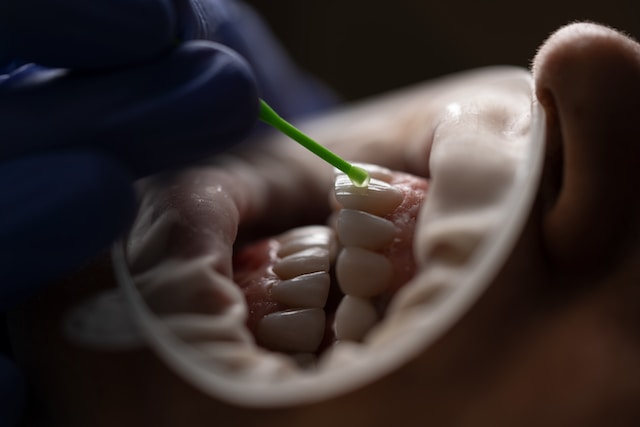How long can you keep your teeth with periodontal disease is one of the most commonly asked questions.
Teeth diseases have become very common nowadays. Among these diseases gum disease also known as periodontal disease has become very common in older people. The majority of adults have this problem.
This disease may be caused due to many different reasons. However, the main reason for this is the plague. If you do not clean your teeth properly plaque gets built up around the teeth which causes periodontal disease.
Periodontal disease can be detected in its early stage. You just need to notice the changes in your teeth. You may experience bleeding gums, receding gums, bad breath or foul taste. However, people often don’t pay much attention towards these problems and treat them as common problems.
How long can you keep your teeth with periodontal disease? If the person takes the necessary measures in the early stage it can be cured fully just by medicines without any surgery required.
However, if the early symptoms are ignored it can lead to danger including teeth loss. If the proper treatment is not provided to your teeth they will have to be removed eventually. But the main question is how long can you keep your teeth with periodontal disease? So here in this article, we will discuss all periodontal diseases.
How To Detect Periodontal Disease?
Flossing or bleeding from gums on brushing is a sign of unhealthy teeth. All teeth diseases are caused due to unhealthy gums. So if your gums are healthy the teeth will be disease free. A thin layer of plaque is built up on our teeth after eating which contains bacteria.
That is why it is suggested to brush your teeth every day. If someone does not brush or floss their teeth regularly and properly it leads to plaque buildup. With time the gums get irritated due to this and it also affects the tissues and supportive tooth bones.
The initial stage of periodontal disease is known as gingivitis. It can be detected easily. The gums appear swollen and red, slump gums and sensitivity in teeth are its early symptoms. It’s highly suggested to see a doctor if you are facing any of these problems. Ignoring it may cause some other serious tooth problems.
How long can you keep your teeth with periodontal disease? Curing gingivitis is easy. By brushing your teeth regularly it can be cured. However, if proper attention is not paid it may lead to periodontal disease. With too much plaque and bacteria built up on the teeth, it may lead to tartar. You may face some major consequences like tooth loss if this tartar gets built up below the gum line.
Once the tartar is built up below the gum line it cannot be cured at home. It is highly suggested to see a dentist as soon as possible. The dentist cleans it and removes all the plaque from your teeth.
Teeth With Periodontal Disease:
It’s very important to maintain proper oral hygiene. Not brushing and flossing your teeth regularly may seem normal at first. However, with time it will get worse. The plague will build up on your teeth gradually leading to periodontal disease.
People suffering from it often experience bad breath, tooth widening, change in taste or bleeding from gums. If you are also facing some of these problems it’s time for you to take good care of your teeth or else these symptoms may get worse.
People who have already passed these symptoms and have periodontal disease often ask how long can you keep your teeth with periodontal disease. If you are suffering from periodontal disease you must see a doctor or it may lead to tooth fall.
Losing your teeth is just one problem. There are other problems you may face. The bacteria might get mixed with your blood leading to diabetes, respiratory disease, coronary artery or many other health hazards.
Things You Should Avoid While Periodontal Disease:
Although the main cause of the periodontal disease is not brushing and flossing properly. This problem may get even worse if you don’t avoid a few things like:
Bad hygiene of the mouth:
If someone is suffering from periodontal disease it’s hard to say how long can you keep your teeth with periodontal disease. However, they must take good care of the hygiene of their mouth. If you avoid it may cause some other serious problems.
Stressing:
Stressing is very bad for people suffering from periodontal disease. If you are suffering from anxiety or stress it will affect your immune system and you may suffer from various other serious health hazards.
Other diseases:
Periodontal disease can get worse if one is suffering from diabetes, hypertension or other heart diseases. It’s all a threat to cancer patients.
Tobacco and smoking:
Chewing tobacco or smoking while periodontal disease will lead to even more serious issues. You must avoid these things as it is very harmful to your health.
Periodontal Disease Cure:
It’s hard to say how long can you keep your teeth with periodontal disease but it eventually falls out. So it’s better to take care of it in its initial stage. Some of the basic things you must keep in mind like:
Brushing regularly:
If someone is suffering from gingivitis it’s very important to brush your teeth properly and every day. If you don’t brush regularly it will lead to periodontal disease.
Avoid eating harmful things:
People suffering from periodontal disease must avoid certain things they eat like tobacco and smoking. It’s very harmful to the teeth and causes other problems too like lung cancer or mouth cancer.
Don’t avoid early signs:
If you are developing any signs of periodontal disease like bleeding or swollen gums, bad breath or change in taste do not ignore it. Try to fix it at home or else see a doctor.
See a doctor:
If the symptoms of gingivitis are not cured at home and develop into periodontal disease it’s highly suggested to see a doctor.
Conclusion:
Periodontal disease may occur due to dirty teeth. If you don’t brush your teeth properly plaque gets built up on the surface of the teeth which then affects the gums too. It shows some signs like bleeding and swollen gums, bad breath or a change in taste. In the early stages, it can be cured at home with some care but if it gets worse it’s highly suggested to see a dentist.










